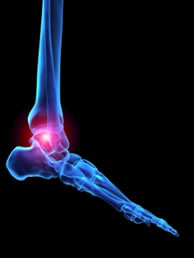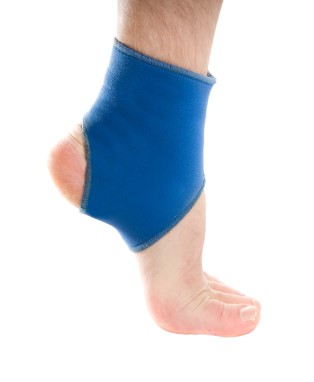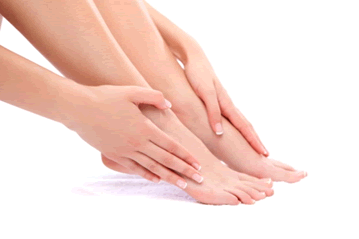Items filtered by date: May 2016
Yoga May Help Treat Rheumatoid Arthritis
 According to the Johns Hopkins Arthritis Center, research suggests that “yoga is an ideal exercise to promote joint health.” If rheumatoid arthritis patients are interested in starting the activity, gradually ease into yoga by observing if there is pain after a few days of doing some exercises. Patients should be careful when doing poses by avoiding overextension of the neck and by keeping their heads in line with the spine. See your doctor to best determine your condition and how to proceed.
According to the Johns Hopkins Arthritis Center, research suggests that “yoga is an ideal exercise to promote joint health.” If rheumatoid arthritis patients are interested in starting the activity, gradually ease into yoga by observing if there is pain after a few days of doing some exercises. Patients should be careful when doing poses by avoiding overextension of the neck and by keeping their heads in line with the spine. See your doctor to best determine your condition and how to proceed.
Because RA affects more than just your joints, including the joints in your feet and ankles, it is important to seek early diagnosis from your podiatrist if you feel like the pain in your feet might be caused by RA. For more information, consult with Dr. Joshua David Scoll of Pennsylvania. Our doctor will assist you with all of your foot and ankle needs.
What Is Rheumatoid Arthritis?
Rheumatoid Arthritis (RA) is an autoimmune disorder in which the body’s own immune system attacks the membranes surrounding the joints. Inflammation of the lining and eventually the destruction of the joint’s cartilage and bone occur, causing severe pain and immobility.
Rheumatoid Arthritis of the Feet
Although RA usually attacks multiple bones and joints throughout the entire body, almost 90 percent of cases result in pain in the foot or ankle area.
Symptoms
- Swelling & pain in the feet
- Stiffness in the feet
- Pain on the ball or sole of feet
- Joint shift and deformation
Diagnosis
Quick diagnosis of RA in the feet is important so that the podiatrist can treat the area effectively. Your doctor will ask you about your medical history, occupation, and lifestyle to determine the origin of the condition. Rheumatoid Factor tests help to determine if someone is affected by the disease.
If you have any questions, please contact our offices located in Philadelphia and Bensalem, PA. We offer the newest diagnostic and treatment technologies for all your foot care needs.
Darlington Nagbe Suffers Ankle Sprain after Tackle
 Darlington Nagbe suffered an ankle sprain injury after being tackled by Nigel de Jong, missing the Timbers game against FC Dallas. The injury didn’t seem severe and there were no reported broken bones. Recovery time for Nagbe was unknown at the time, but he had to be escorted off the field in a stretcher. de Jong had fallen directly onto Nagbe’s ankle and was given a yellow card for the tackle.
Darlington Nagbe suffered an ankle sprain injury after being tackled by Nigel de Jong, missing the Timbers game against FC Dallas. The injury didn’t seem severe and there were no reported broken bones. Recovery time for Nagbe was unknown at the time, but he had to be escorted off the field in a stretcher. de Jong had fallen directly onto Nagbe’s ankle and was given a yellow card for the tackle.
Ankle sprains are common, but need immediate attention. If you have any concerns about your feet, consult with Dr. Joshua David Scoll of Pennsylvania. Our doctor will assist you with all of your foot and ankle needs.
How Does an Ankle Sprain Occur?
Ankle sprains take place when the ligaments in your ankle are torn or stretched beyond their limits. There are multiple ways that the ankle can become injured, including twisting or rolling over onto your ankle, putting undue stress on it, or causing trauma to the ankle itself.
What are the Symptoms?
- Mild to moderate bruising
- Limited mobility
- Swelling
- Discoloration of the skin (depending on severity)
Preventing a Sprain
- Wearing appropriate shoes for the occasion
- Stretching before exercises and sports
- Knowing your limits can aid in prevention
Treatment of a Sprain
Treatment of a sprain depends on the severity. Many times, people are told to rest and remain off their feet completely, while others are given an air cast. If the sprain is very severe, surgery may be required.
If you have suffered an ankle sprain previously, you may want to consider additional support such as a brace and regular exercises to strengthen the ankle.
If you have any questions, please contact our offices located in Philadelphia and Bensalem, PA. We offer the newest diagnostic and treatment technologies for all your foot care needs.
Orthotic Products Are Becoming More Popular
 Prescription orthotics, otherwise known as custom orthotics, are specifically designed to accommodate your own personal foot structure. They are designed to complement the movement of your feet. Shoe inserts, on the contrary, serve the function of providing additional support and cushioning for your feet, but are not customized for your feet. Custom orthotics are ideal for treating conditions such as plantar fasciitis, tendonitis, diabetic foot ulcers, flat foot, and more.
Prescription orthotics, otherwise known as custom orthotics, are specifically designed to accommodate your own personal foot structure. They are designed to complement the movement of your feet. Shoe inserts, on the contrary, serve the function of providing additional support and cushioning for your feet, but are not customized for your feet. Custom orthotics are ideal for treating conditions such as plantar fasciitis, tendonitis, diabetic foot ulcers, flat foot, and more.
If you are having discomfort in your feet and would like to try orthotics, consult with Dr. Joshua David Scoll of Pennsylvania. Our doctor will assist you with all of your foot and ankle needs.
What are Orthotics?
Orthotics are inserts you can place into your shoes to help with a variety of foot problems such as flat feet or foot pain. Orthotics provide relief and comfort for minor foot and heel pain, but can’t correct serious biomechanical problems in your feet.
Over-the-Counter Inserts
Orthotics come in a wide variety of over-the-counter inserts that are used to treat foot pain, heel pain, and minor problems. For example, arch supports can be inserted into your shoes to help correct over arched or flat feet, while gel insoles are often used because they provide comfort and relief from foot and heel pain by alleviating pressure.
Prescription Orthotics
If over-the-counter inserts don’t work for you, or if you have a more severe foot issue, it is possible to have your podiatrist prescribe custom orthotics. These high quality inserts are designed to treat problems such as abnormal motion, plantar fasciitis, and more severe heel pain. They can even be used to help patients suffering from diabetes by treating foot ulcers and painful calluses, and are usually molded to your feet individually, which allows them to provide full support and comfort.
If you are experiencing minor to severe foot or heel pain, it’s recommended to speak with your podiatrist on the possibilities of using orthotics. A podiatrist can determine which type of orthotic is right for you and allow you to take the first steps towards being pain free.
If you have any questions, please contact our offices located in Philadelphia and Bensalem, PA. We offer the newest diagnostic and treatment technologies for all your foot care needs.
Recent Audit Suggests that Diabetic Patients Should See their Podiatrists Regularly
 Diabetic foot ulcers are considered one of the most potentially life-threatening problems to occur for diabetic patients if left untreated. According to the National Diabetes Foot Care Audit (NDFA), “around 10 percent of people with diabetes will have a diabetic foot ulcer at some point in their lives,” especially if their feet are not properly taken care of. It’s important to see a foot specialist or doctor regularly to ensure prevention and treatment of your diabetic feet.
Diabetic foot ulcers are considered one of the most potentially life-threatening problems to occur for diabetic patients if left untreated. According to the National Diabetes Foot Care Audit (NDFA), “around 10 percent of people with diabetes will have a diabetic foot ulcer at some point in their lives,” especially if their feet are not properly taken care of. It’s important to see a foot specialist or doctor regularly to ensure prevention and treatment of your diabetic feet.
Diabetic foot care is important in preventing foot ailments such as ulcers. If you are suffering from diabetes or have any other concerns about your feet consult with Dr. Joshua David Scoll of Pennsylvania. Our doctor will assist you with all of your foot and ankle needs.
Diabetic Foot Care
Diabetes affects millions of people every year. Diabetes can damage blood vessels in many parts of the body, including the feet. Because of this, taking care of your feet is essential if you have diabetes, and having a podiatrist help monitor your foot health is highly recommended.
The Importance of Caring for Your Feet
- Routinely inspect your feet for bruises or sores.
- Wear socks that fit your feet comfortably.
- Wear comfortable shoes that provide adequate support.
Patients with diabetes should have their doctor monitor their blood levels because blood sugar levels play such a huge role in diabetic care. Monitoring these levels on a regular basis is highly advised.
It is always best to inform your healthcare professional of any concerns you may have regarding your feet, especially for diabetic patients. Early treatment and routine foot examinations are keys to maintaining proper health, especially because severe complications can arise if proper treatment is not applied.
If you have any questions, please contact our offices located in Philadelphia and Bensalem, PA. We offer the newest diagnostic and treatment technologies for all your foot care needs.
Treating Your Cracked Heels
 Cracked heels are a common foot condition that many people experience. Aside from dry, rough skin, cracked heels can also bring about signs of redness, itching, or inflammation. To combat cracked heels, consider some of the following tips: using mild soaps that are not overly drying, wearing proper-fitting shoes that cover and protect the heels, soaking the feet in warm water to soften the heel and prevent the heels from thickening, exfoliating the heels with a scrub to remove excessive dry and dead skin, and moisturizing the feet with a thick lotion or cream that will penetrate the skin.
Cracked heels are a common foot condition that many people experience. Aside from dry, rough skin, cracked heels can also bring about signs of redness, itching, or inflammation. To combat cracked heels, consider some of the following tips: using mild soaps that are not overly drying, wearing proper-fitting shoes that cover and protect the heels, soaking the feet in warm water to soften the heel and prevent the heels from thickening, exfoliating the heels with a scrub to remove excessive dry and dead skin, and moisturizing the feet with a thick lotion or cream that will penetrate the skin.
Cracked heels are unsightly and can cause further damage to your shoes and feet. If you have any concerns, consult with Dr. Joshua David Scoll of Pennsylvania. Our doctor will assist you with all of your foot and ankle needs.
Cracked Heels
Cracked heels are unappealing, and make it harder for you walk around in sandals. Not only may they look bad, but they can also tear stockings, socks, and wear out your shoes. There are several methods to help restore a cracked heel and prevent further damage.
How do you get them?
Dry skin is the number one culprit in creating cracked heels. Many athletes, walkers, joggers, and even swimmers suffer from cracked heels. Age and skin oil production play a role to getting cracked heels as well.
Promote Healing
Over the counter medicines can help, especially for those that need instant relief, or who suffer from chronic dry feet.
Wear Socks – wearing socks with medicated creams, helps lock in moisture so it can stay on longer.
Moisturizers – applying it both day and night will help alleviate dryness which causes cracking.
Pumice Stones – these remove dead skin, and then you can massage cream onto your foot. This way the cream will be absorbed. The skin needs to be exfoliated; therefore the outer layer dead skin needs removal.
Change in Diet
Eating healthy, with a well-balanced diet, will give the skin a fresh and radiant look. Your body responds to what kinds of food you ingest. Omega-3 fatty acids and zinc supplements will also help with skin tissue.
Most importantly seek a health professional for foot care if something is wrong or doesn’t seem to be working. A podiatrist will help you with any questions or information needed.
If you have any questions, please contact our offices located in Philadelphia and Bensalem, PA. We offer the newest diagnostic and treatment technologies for all your foot care needs.
